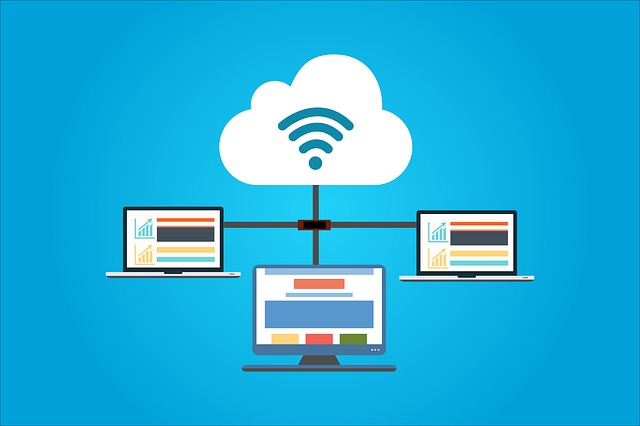Cloud computing has different meanings for different people. It could mean streaming a Netflix movie from the cloud or it could mean storing data online and retrieving it later. Running productivity apps in Google’s cloud system (G-Suite) is another one of many examples that the cloud can be used for.

Most software development services today should be familiar with the benefits of the cloud and creating software specifically for it. They will help you combine the benefits of cloud computing with traditional standalone software in a seamless way, so companies can offer their customers a wide range of apps. The cloud can be used for different tasks in general development as well.
For a long time, cloud computing was an abstract phase not really understood or known by a wider audience of computing users. Many people could not understand how data could be retrieved seemingly out of thin air.
However, the term has become ubiquitous these days and understood by the general public as cloud storage services have become the norm. As larger companies like Amazon, Microsoft, Google and Apple embraced the cloud for storage and other services, more regular users jumped on the cloud bandwagon. Read more about cloud computing.
Table of Contents
Data Management
Data is actually retrieved from servers running in data centers away from the user or client. The client requests the data on-demand (24/7 access regardless of location) and the data is sent through high-powered and secure networks connected to the Internet from servers that host it.
Users can tap into a server with the help of the cloud network and work on a document or spreadsheet. The benefit of this is that they can collaborate simultaneously in different locations of the world. The network records these states in a server ran by a company like Google or Apple and they can save their work simultaneously.
Early cloud services were an answer to users running out of space on their hard drives and wanting to offload storage without purchasing additional hardware. They also provided solutions to companies that wanted their data copied and secured somewhere remotely in case of an outage or data loss.
Many of these services now offer their own collaboration tools allowing their users to work on a variety of file types across far-reaching geographical zones. They also provide users the ability to share files with whoever they want or keep them private for their own access.
Implementations of the Cloud as Web Apps
Sometimes, software can entirely run from the cloud and the user does not have to install anything. All they need is their browser while the software is stored in a remote server and run remotely. An example of such software are apps running through web browsers commonly known as Software as a Service (SaaS).
Customers can access SaaS apps across any browser and operating system because they do not require local storage or a download of any sort to run. They often rely on a subscription model rather than a one-time payment for a lifetime of usage that is common for standalone apps.
Public, Private & Hybrid Cloud
To add further classification and differentiate between cloud systems, there are three cloud classifications to consider. The three different forms of cloud computing to consider include private, public and hybrid clouds.
Private Cloud
A private cloud operates in a private network of servers hosted by an individual company running its own servers in a room or in its own datacenter. The company then relies on a VPN or internal connections for its employees and partners to access the data on these servers.
Public Cloud
A public cloud is the most well-known form of cloud computing. It is what most computer users see when bigger companies offer them cloud storage or cloud services like SaaS. Businesses rely on the public cloud when outsourcing cloud services out from another company rather than relying on internal servers and software installed on each computer.
Regular computer users rely on a public cloud when they store their data with one of the well-known tech companies of today or stream services like movies from Netflix. Most of the known tech companies of today like Microsoft, Apple or Google offer some form of cloud software or services.
Hybrid Cloud
A hybrid cloud combines the best of both worlds. This approach takes the private cloud’s strong security within a tightly controlled network with the added benefit of the on-demand access, backup and collaborative features of a public cloud.
What Businesses Need to Consider When Choosing Cloud
Companies today need to find the best ways to use the cloud and it is not an easy feat. They have to balance the need for internal security and keep information leaks at a minimum. At the same time, they should have backup data retrieval processes in place and access to this data on demand in case of an outage to keep their businesses afloat.
Data redundancy is a strong reason to rely on cloud outsourcing as even internal servers or backup servers can go out within a company or geographical-based outage. The public cloud is much more than just data storage and companies may not have internal software support to rival outsourced providers.
Scalability is also important because a company can grow or reduce their cloud demands according to fluctuating needs. Maybe the company needs more storage space or more users during certain periods of growth and later this can be scaled down when not needed.
There are obvious reasons to consider both private and public cloud approaches. However, a hybrid approach may make the most sense to balance out the strengths and weaknesses of both.
For startups, outsourcing everything from productivity apps to storage to a public cloud provider makes the most sense, while for large enterprises the more private and secure their cloud is, the better it is for their business at that point.

